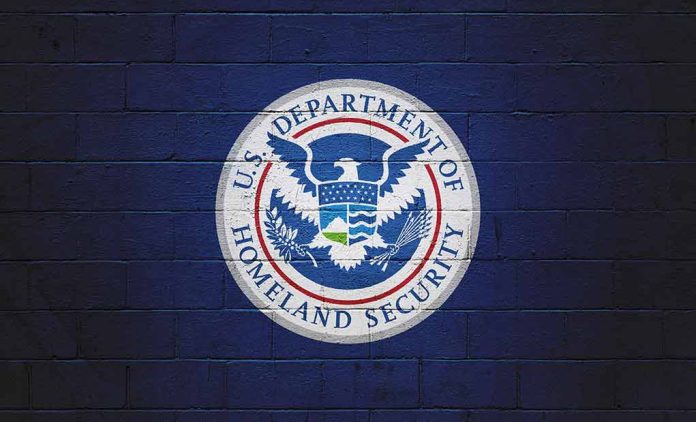
The U.S. takes decisive action, revoking visas of Mexican musicians who allegedly praised a notorious cartel leader during a performance in Mexico.
Key Takeaways
- The U.S. State Department revoked the visas of Los Alegres del Barranco after they publicized images of CJNG leader “El Mencho” at a concert.
- Deputy Secretary of State Christopher Landau emphasized consequences for glorifying criminal figures.
- The CJNG is categorized as a Foreign Terrorist Organization by the U.S.
- President Claudia Sheinbaum condemned the concert, while legal actions proceed in Mexico.
- Los Alegres del Barranco had planned performances in the U.S., including the Bésame Mucho festival in Austin.
U.S. Visa Revocation
The United States has canceled the visas of Mexican corrido group Los Alegres del Barranco following their display of images praising Nemesio Oseguera Cervantes, also known as “El Mencho,” leader of the Cartel Jalisco New Generation (CJNG), during a concert. This decision underscores the firm stance the U.S. is taking against promoting individuals associated with criminal organizations. As the CJNG is designated a Foreign Terrorist Organization by U.S. authorities, displaying their leader’s image is seen as legitimizing a group linked to severe violence and crime.
The U.S. Deputy Secretary of State, Christopher Landau, announced the visa cancellation stating the importance of holding individuals accountable for actions that glorify drug kingpins. This move indicates the seriousness with which the U.S. government approaches the issue of cartel glorification. President Claudia Sheinbaum of Mexico has similarly condemned the promotion of criminal icons, launching an investigation into the incident.
Backlash in Mexico
The controversial concert took place in Zapopan, Jalisco, bringing about significant legal and political consequences in Mexico. The performance, which garnered viral attention, included AI-generated images of “El Mencho” and sparked an investigation by the Jalisco State Prosecutor’s Office. Despite receiving support from some fans, the concert was widely criticized within the country. Jalisco’s Governor Pablo Lemus emphasized that further measures would be established to ensure such events do not glorify crime.
This incident exemplifies the tension between cultural expression and the legal and ethical boundaries concerning crime glorification. As the band faces legal issues and unavailable future performances, their actions illustrate the serious implications when art intersects criminal activity promotion.
Consequences and Future Impact
The fallout from this incident is extensive, affecting both the band’s career and the perception of live musical performances involving sensitive themes. While Los Alegres del Barranco members have claimed audience support, dismissing critics as “confused,” they now face an uncertain future with canceled U.S. performances, including a highly anticipated event in Austin, Texas. The revoked visas reflect a significant policy standpoint where the U.S. seeks to deter any form of endorsement or normalization of criminal organizations through cultural mediums.
As this situation unfolds, it serves as a precedent and a warning to other artists and performers. The message is clear: the glorification of figures associated with organized crime will face scrutiny and tangible repercussions both domestically and internationally. This incident has brought renewed attention to how cultural events should responsibly navigate themes related to crime and law enforcement.
Sources
1. U.S. Cancels Visas for Mexican Group After Showing Cartel Leader Photos in Concert
2. U.S. Revokes Visas of Mexican Musicians Whose Show Praised Cartel Boss




